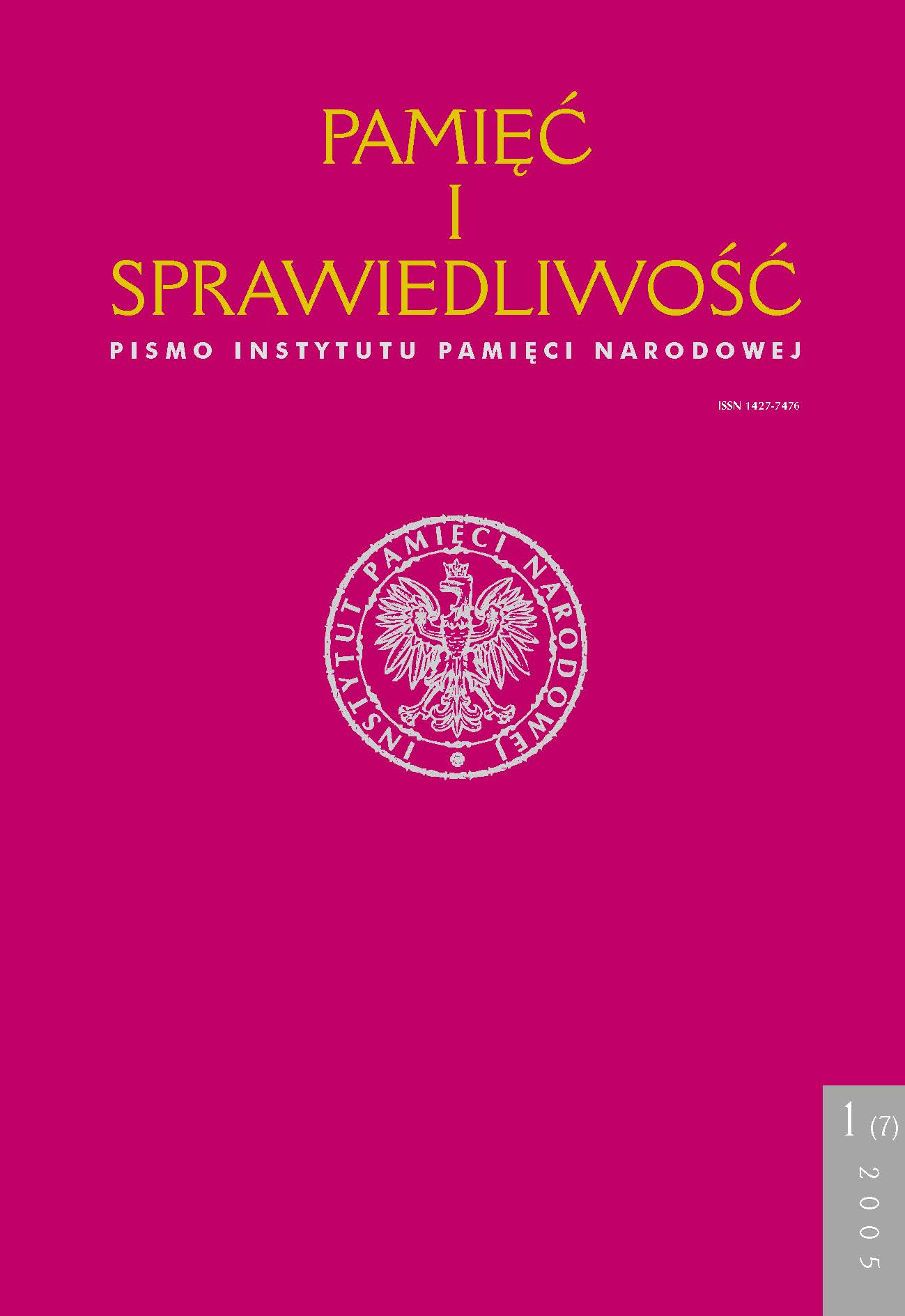Kościół rzymskokatolicki na Ukrainie Zachodniej na przykładzie Tarnopolszczyzny w latach 1946–1989
Pamięć i Sprawiedliwość, Tom 7 Nr 1 (2005), strony: 203-226
Data publikacji: 2005-06-30
Abstrakt
In 1944–1945 100 000 Polish repatriates, including nearly 100 priests left the Tarnopol region. 259 churches and chapels became deserted. Toward the end of the forties there remained eleven legally functioning Roman Catholic communities, with almost 3000 faithful, looked after by seven priests. Despite the hostility of the atheistic, totalitarian regime, the communities not only preserved their religious tradition and national identity, but also became a moral support to the underground Ukrainian Greek Catholic Church.
In the Khrushchev era – in contrast to the Stalinist period – mass repressions were not
instigated the clergy, quite the opposite – many clergymen were freed from prisons and camps. However, at the same time, atheist propaganda was intensified. Orthodox and Catholic churches were being closed, religious communities were being officially deregistered. Due to this, in 1964 only six registered Roman Catholic communities remained with the same number of churches. The remaining communities lost their previous status. Through delegalising them, the local authorities were acting according to the expectations of the Kiev and Moscow officials, however, they made it more difficult for themselves to control part of the Roman Catholics in future. Persecutions led to the closing of the Roman and Greek Catholics – not only in the Tarnopol district, but also in the whole of Western Ukraine.
During Brezhnev’s rule the atheist course was continued. In the mid seventies in the Tarnopol region only three legally registered parishes remained, with three churches, while as many as ten functioned illegally. Naturally, this situation could not please local
Catholics. The active attitude of the clergy, imbued by the spirit of the II Vatican Council, caused the faithful to become more active. They started systematically sending petitions to the district plenipotentiary for religious cults concerning the reregistration of the Roman Catholic parishes. The authorities consistently refused. Not until the policies of glasnost and perestroika, inaugurated by Gorbachov, were there conditions for religious freedom and the rebirth of Catholicism and other religions.
The Roman Catholics of the Tarnopol region had their loyalty to Jesus Christ and the Holy See. They passed the test honourably and with a clear conscience.
Inne teksty tego samego autora
- Jarosław Stocki, Lwowski sobór 8–10 marca 1946 roku: przygotowania, przebieg i skutki. Rola systemu totalitarnego , Pamięć i Sprawiedliwość: Tom 14 Nr 1 (2009)
 Język Polski
Język Polski
 English
English
 Deutsch
Deutsch
 Français (France)
Français (France)
 Italiano
Italiano
 Русский
Русский


 PDF
PDF
